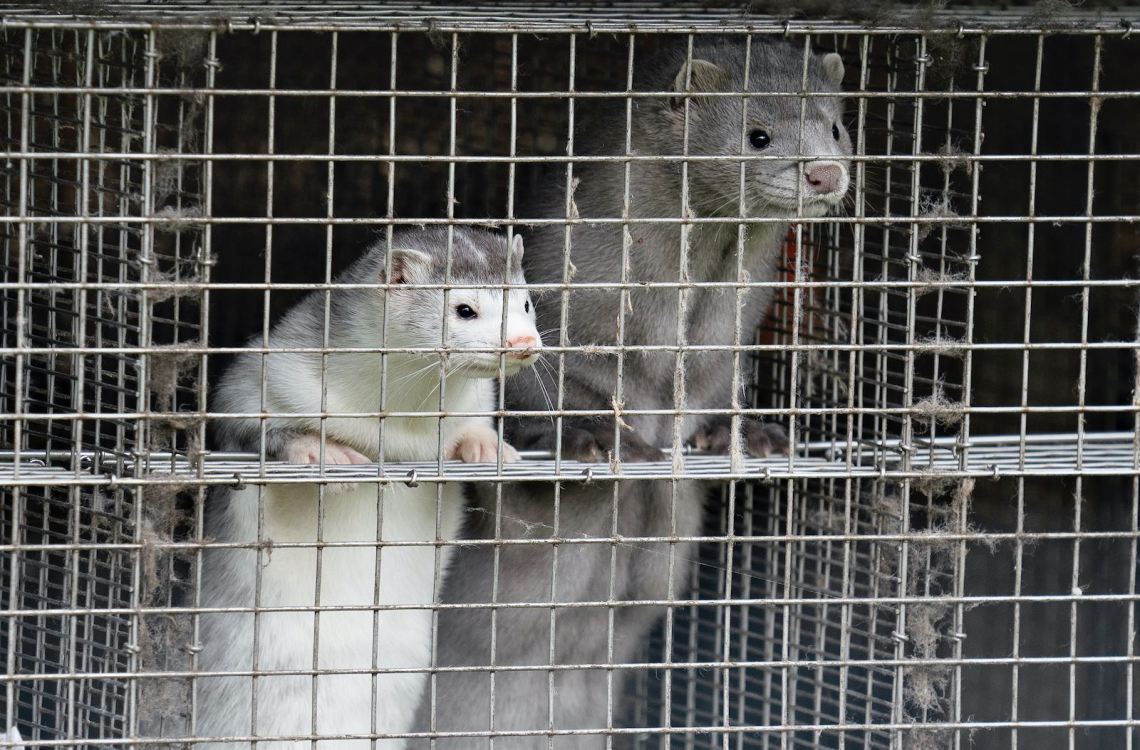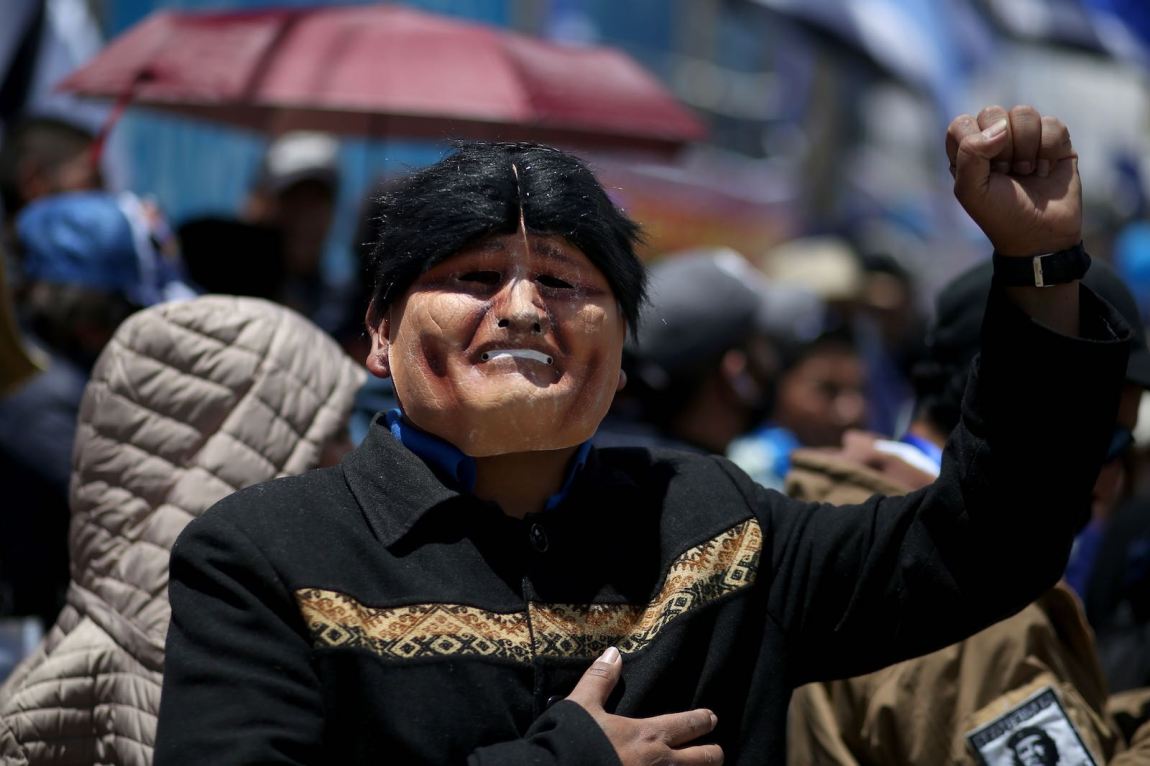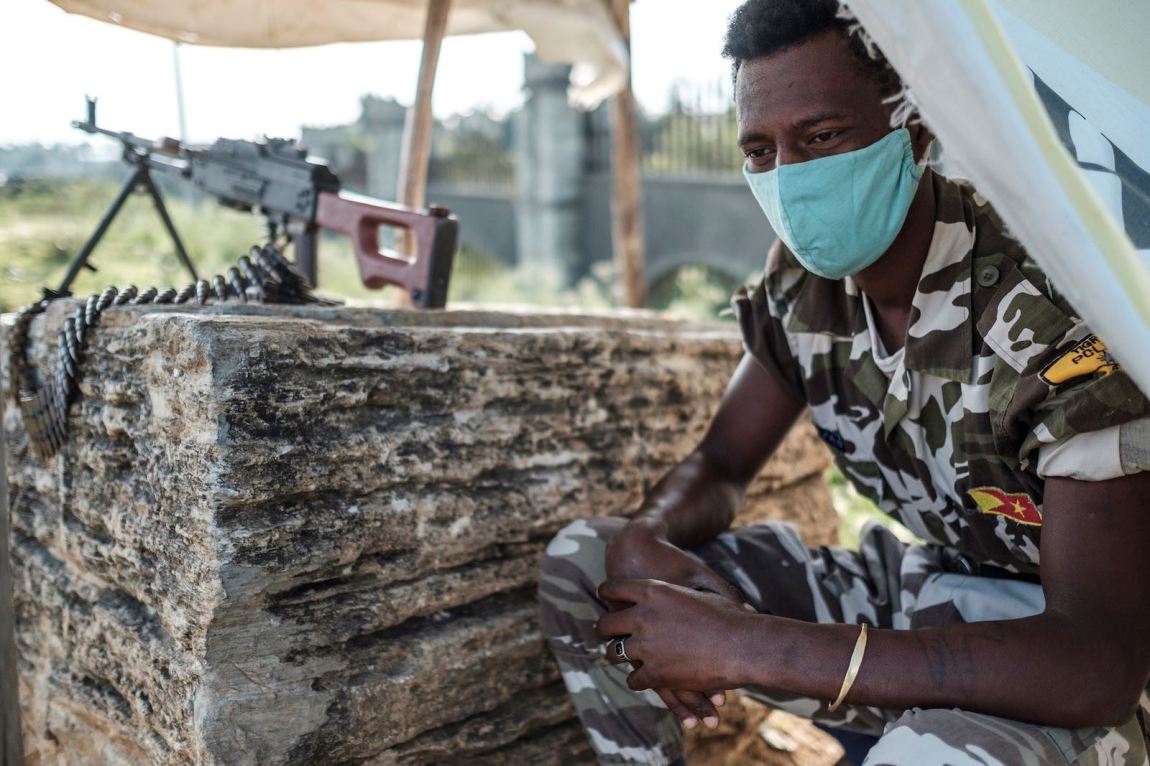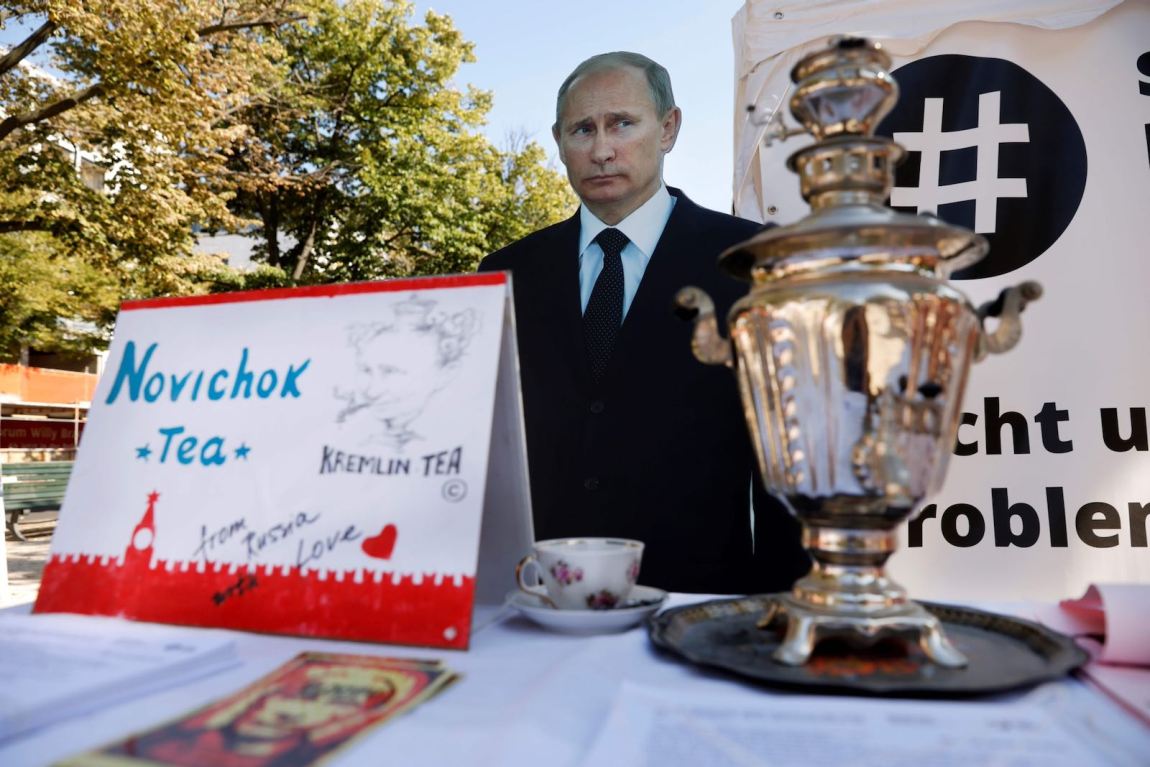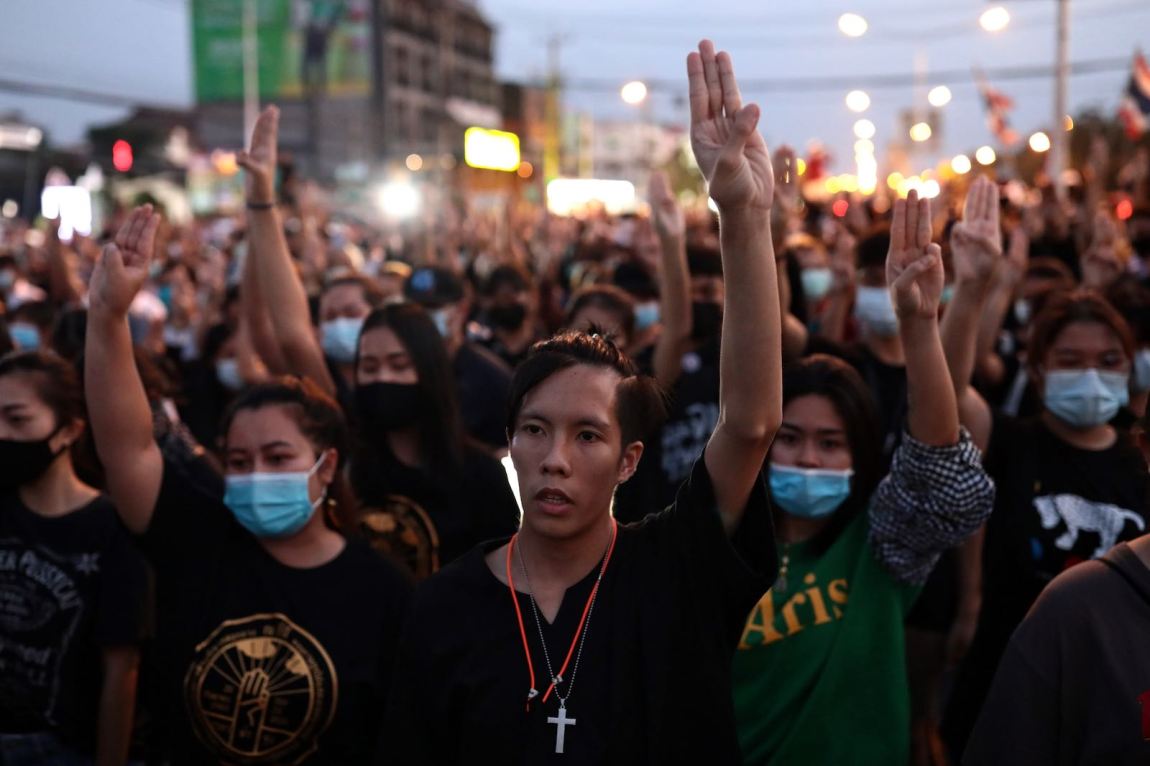Europe
Across Europe, rates of coronavirus infection have been rising steeply, prompting a wave of restrictions and lockdowns. In the UK, a full national lockdown was resumed on Thursday for the first time in months; the day before had seen the country’s second-highest number of daily cases, and nearly five hundred deaths. Prime Minister Boris Johnson has warned that this could rise to thousands per day over the winter. In France, the equivalent figure was 854—the country’s worst since April—with daily cases of infections now running above 30,000. (The US just hit a new, hundred-thousand-per-day mark.)
Switzerland was reinforcing its hospitals with soldiers to meet the influx of Covid-19 patients. Greece begins a three-week full lockdown this weekend, as cases spike. Germany and Poland, both seeing new daily highs, have tightened restrictions—in Germany’s case, with Chancellor Merkel announcing a “partial lockdown”; and in Poland, a measure just short of “national quarantine.” Meanwhile, Italy has reintroduced a nighttime curfew and named four regions as “red zones,” meaning a travel ban and the closure of all non-essential stores.
It’s not only humans that are at risk. In Denmark, a huge cull of mink is afoot after a coronavirus mutation that can spread to humans was discovered in the farmed animals. Denmark is the world’s biggest producer of mink fur; some 17 million animals at its thousand-plus farms now face destruction.
Although coronavirus outbreaks have previously been found at mink farms in Spain and the Netherlands, the concern is that this mutation, already detected at hundreds of mink farms, could pose a threat not only to human health, but also specifically to the effectiveness of human vaccines currently under development. Prime Minister Mette Frederiksen called the situation “very, very serious.” Danish police and soldiers were being mobilized to assist with the cull.
Middle East
Saudi Arabia, its economy hard-hit by the coronavirus and sharply reduced demand for oil, is continuing efforts to rehabilitate its international reputation after the widespread condemnation of the regime’s involvement in the murder two years ago of Washington Post columnist Jamal Khashoggi. A Saudi ministry announced on Wednesday that the kingdom was liberalizing its rules on foreign workers, who previously were dependent on a single employer to “sponsor” their work permits. Known as “kafala,” this notorious practice often led to semi-indentured and abusive conditions for the country’s estimated 10 million foreign workers (approximately one third of the country’s total population).
The new rules will enable foreign workers to transfer their sponsorship from employer to employer, and will also allow them to leave the country freely, without an employer’s permission. The reform seemingly marks a resumption of Crown Prince Mohammed bin Salman’s Vision 2030 program, which, back in 2017, earned plaudits from US commentators as “its own Arab Spring, Saudi style,” until the Khashoggi affair—a killing ordered by the crown prince himself, the CIA concluded—soured external relations.
Last month, the Kingdom was able to partially reopen the Grand Mosque in Mecca for pilgrims, after its earlier closure because of the pandemic. And this week, the Saudi sports minister announced that Jeddah would host a Formula 1 Grand Prix race, for the first time, in 2021, despite criticism of the motorsport’s governing body by human rights groups that the FIA is abetting the “sportswashing” of Saudi’s dismal human rights record.
Formula 1 drivers are not noted for their human rights advocacy—in contrast to Loujain al-Hathloul, the thirty-one-year-old Saudi who went on hunger strike on October 26 to protest the conditions of her imprisonment. Al-Hathloul first came to prominence, ironically, in the campaign for women’s right to drive in the kingdom. That right was conceded in 2018, but by then, she was already in detention, along with several other women campaigners, on national security grounds.
Al-Hathloul was later accused in a Riyadh court of, among other offenses, calling for an end to the kingdom’s male guardianship system. This week, the United Nations women’s rights committee expressed its grave concern for the state of her health.
Latin America
Bolivia’s election on October 18 was enviably calm and orderly. With a historic high of almost 90 percent voter turnout, Luis Arce, a former economy minister and chosen successor to Evo Morales’s left-wing party, won 55 percent of the vote.
Earlier fears of mass protests and violence never came to pass for a nation that has been bitterly divided between supporters and critics of Morales, the former president, who, as the country’s first Indigenous leader, helped lift hundreds of thousands out of poverty, but increasingly consolidated personal power over his fourteen years of leadership. Last year, in the face of large-scale protests when he attempted to run for a fourth term, Morales fled the country, taking refuge in Mexico.
Advertisement
The exiled Morales is now set to return to Bolivia next week. Amid questions about whether Morales will be involved in the future administration, Arce has insisted on his independence. Arce inherits an economic crisis—with soaring debt and poverty—and a nation ravaged by the Covid-19 pandemic.
Africa
The danger of a possible civil war breaking out in Ethiopia was growing Wednesday when Prime Minister Abiy Ahmed deployed the country’s military to the northern Tigray region. He claimed that the Tigray People’s Liberation Front (TPLF), a party that led a political coalition from 1989 to 2018, had attacked a federal military installation there, and declared a six-month state of emergency.
Tensions in the region had been growing since September, when Tigray held parliamentary elections despite the government’s order to postpone the vote because of the Covid-19 pandemic. But the roots of the conflict go back to Abiy’s rise to power in 2018, when TPLF lost power during the transition and, last year, quit Abiy’s ruling coalition.
That Abiy, who was awarded the Nobel Peace Prize in 2019 for reaching an agreement with neighboring Eritrea, and who was elected on the promise of healing a divided country, is now declaring war on a region of his own country may strike some as ironic. Along with a number of reforms ushered in by Abiy, including releasing political prisoners and legalizing previously prohibited opposition groups, Ethiopia’s seen an increase in ethnic divisions and displacements recently.
Russia
In Moscow, Russian lawmakers moved forward with legislation that would grant former presidents lifetime immunity from prosecution. The submission of a bill to the State Duma is in line with changes permitted by the constitutional reforms approved in a nationwide referendum back in July. This had already cleared the way for President Vladimir Putin to run again for office when his current term ends in 2024.
Seeking to cast some shade, by way of contrast with events in the US, a Russian Foreign Ministry spokeswoman noted the “obvious shortcomings of the American electoral system,” which she said were “partly due to the archaic nature of the relevant legislation.” The novelties in Russia’s constitutional law, on the other hand, will permit Putin to remain in power until 2036.
By then, turning eighty-four years old, the former KGB officer will have been Russia’s de facto ruler for nearly four decades. Immunity from prosecution after retirement might therefore seem almost beside the point, but the week also brought a timely reminder that, in Russia, the legal harassment of political opponents by those in power is anything but academic.
On Thursday, masked men in paramilitary police uniforms raided the offices of opposition leader Alexei Navalny. Agents also entered the offices of Navalny’s Anti-Corruption Foundation; its director, Ivan Zhdanov, who is also Navalny’s lawyer, was reportedly charged with contempt of court.
Navalny himself is still recovering in Germany from the effects of poisoning by the nerve agent Novichok, which European Union authorities have interpreted as a sign of Russian state involvement in the apparent assassination attempt, imposing sanctions. The Kremlin has denied involvement.
Asia
Every few days for weeks, student-led demonstrations across Thailand have filled the streets, demanding reforms of the constitution and monarchy, the resignation of Prime Minister Prayuth Chan-ocha, the former army general who came to power last year after disputed elections, and an end to repression of the opposition. Although the government regards the country as a democracy, past such movements in Thailand have often met with violent crackdowns, that most recently saw dozens killed in 2010.
The sway held over the nation by the military, which has a history of intervening in the name of order—Chan-ocha himself being a former coup leader—is an antagonism central to the protest movement. Though Thailand’s recent peaceful demonstrations have not yet been silenced by a coup, people are wary.
Learning from pro-democracy activists in Hong Kong, Thai demonstrators are rejecting centralized leadership in their movement and using the “jungle phone” method and hand signals to communicate needs and warnings across large crowds. (Symbols have played a striking part in these protests, many of them cleverly—and daringly, given the severity of punishments for any criticism of the monarchy—co-opted from the Thai royal family’s theatrical claims to political legitimacy.)
Advertisement
Protesters in Thailand and Hong Kong also recognize, in their shared struggle for democracy, commonalities between their movements amid a new era of popular dissent. Earlier this year, a coalition of activists from Thailand, Hong Kong, and Taiwan dubbed themselves the Milk Tea Alliance, after the popular drink. And finding solidarity through other shared interests, K-pop fans around the world have rallied support and raised money for the Thai movement.
In Brief
• President Trump’s spiritual adviser, Paula White-Cain, said Thursday that “angels have been dispatched” from Africa and South America to assist in his re-election effort.
• “Jerusalema,” the viral global hit, and accompanying dance challenge started by an Angolan troupe, continues to spread.
• In Australia, more than half a million people have signed a petition started by former prime minister Kevin Rudd calling for a parliamentary inquiry into Rupert Murdoch’s domination of the country’s media industry.
• After controversy around the delay of a Philip Guston retrospective, the show will now open in 2022.
• More than a hundred short-finned pilot whales were saved by sailors and villagers in Sri Lanka after a mass beaching incident; three whales and one dolphin did not survive.
• Argentine soccer legend Diego Maradona is recovering after surgery on a blood clot in his brain; the former star player, veteran of four World Cup tournaments, turned sixty last week.
• Turkey has fined Facebook, Twitter, YouTube, Instagram, TikTok, and other social media giants $1.2 million each for failures to remove “offensive” content within forty-eight hours.
• The NBA’s board of governors and players’ association are close to agreeing on the new season start date of December 22, a financial decision that gives players an uncommonly short turnaround from the October 11 championship game.
• In Peru, archaeologists discovered the bones of a nine-thousand-year-old young woman with a “big-game hunting kit” of twenty tools, challenging the wisdom that ancient hunters were male and gatherers female.
• The US officially quit the Paris Climate Accord as its formal notice last year took effect on November 4.


